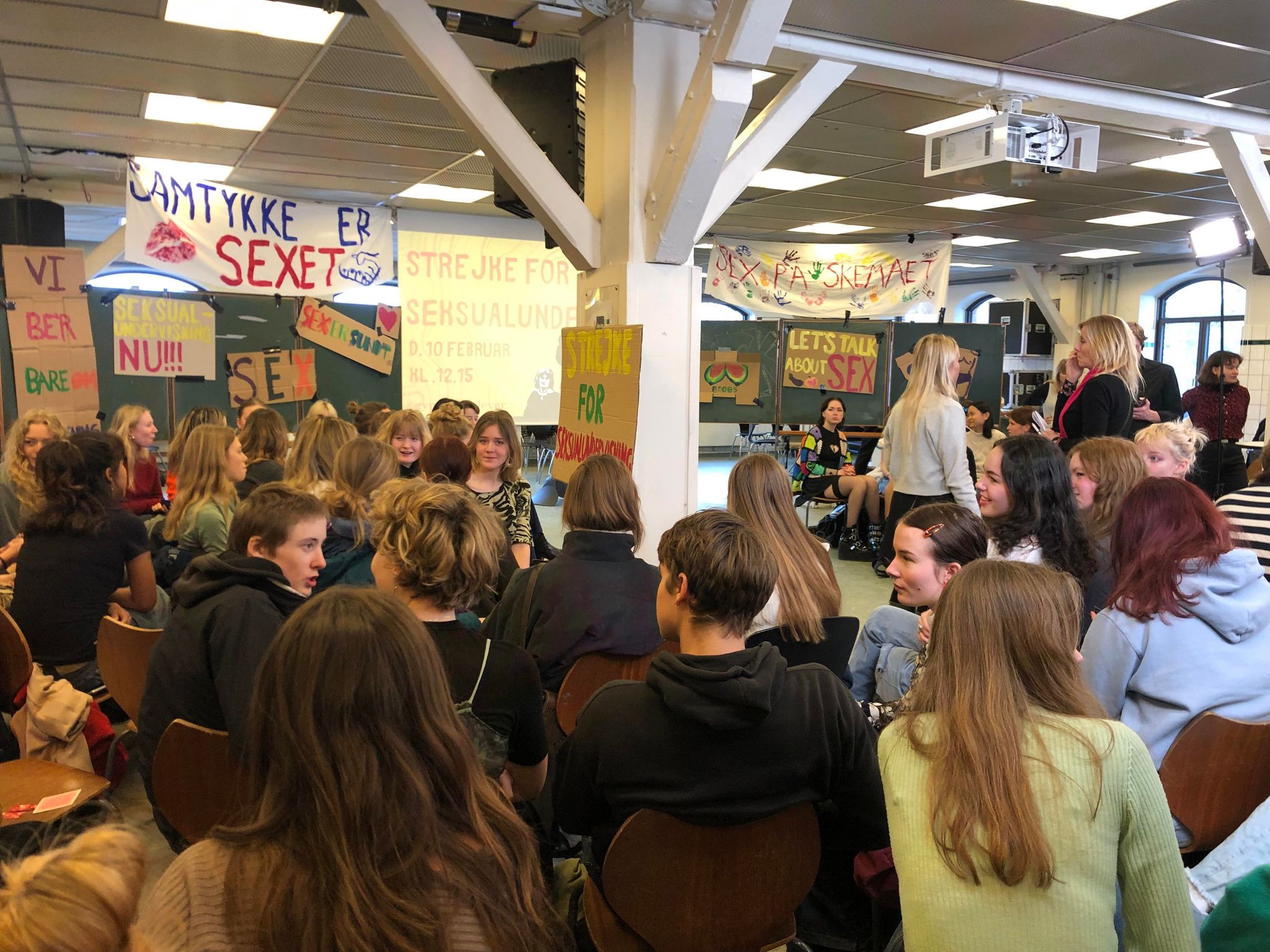School children aged 6-16 are this week learning about consent as part of a Week 6 sex education focus endorsed by Sex & Samfund.
READ MORE: Week ‘Seks’ moving with the times: Birds and the bees joined by consent
However, their upper-secondary counterparts, students generally aged 16-20, feel the need to confirm consent before two people get intimate, which was made part of Danish law in January 2021, is being overlooked at the gymnasium high schools.
Many of them are accordingly holding a strike at midday to draw attention to the issue.
Live-streamed class organised by students
Sex education has a place in the gymnasiums as well, they contend. As well as consent, they are demanding more education about gender, sexuality and boundaries.
Student association group Danske Gymnasieelevers Sammenslutning (DGS) has joined forces with Sex & Samfund to live-stream two hours of sex education from Christianshavns Gymnasium between 12:15 and 14:15.
At least nine other gymnasiums will participate in the strike and watch the broadcast.
Authorities approved it in 1970, but it came to nothing
“We want to shout out that there is a lack of sex education,” explained DGS chair Alma Tynell to DR.
“We see a huge need as many young people find it difficult to decode each other’s boundaries and understand what consent is.”
According to Professor Christian Graugaard from Aalborg University, sex education for gymnasiums was recommended in 1970, “but it never came to anything”.
Education minister approves and offers funding
The education minister, Pernille Rosenkrantz-Theil, has already gone on the record that she supports sex education for the age group, but not as an official subject.
Instead, there is a pool of 2 million kroner a year, which youth education bodies can apply for to fund initiatives such as special theme days.
“It’s strange as most people lose their virginity while they’re at gymnasium,” concludes Tynell.
The median average age for losing one’s virginity in Denmark is 16 or 17.

















